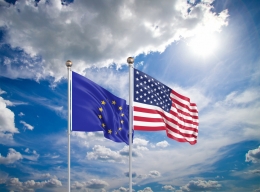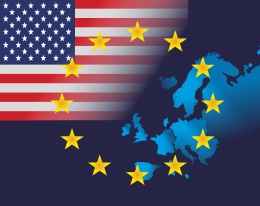European Economic
and Social Committee
Relațiile transatlantice
UE, SUA și Canada împărtășesc valorile democrației, drepturilor omului, libertății economice și politice și au o politică externă și preocupări în materie de securitate similare. SUA și Canada se numără printre principalii parteneri comerciali ai UE și sunt, de asemenea, partenere la configurarea ordinii juridice internaționale. În prezent, relațiile transatlantice se desfășoară într-un mediu nou și se confruntă cu provocări tot mai mari. Considerăm că implicarea societății civile în această relație garantează că relațiile transatlantice pot răspunde așteptărilor publicului și contribuie în mod efectiv la conturarea unei cooperări reciproc avantajoase.
Acordul economic și comercial cuprinzător (CETA) UE-Canada și acordul de parteneriat strategic au fost semnate la 30 octombrie 2016. Vom urmări implicarea constantă a societății civile în punerea în aplicare a acestor acorduri. În prezent, negocierile privind Parteneriatul transatlantic pentru comerț și investiții (TTIP) stagnează. Totuși, negocierile privind TTIP au contribuit la consolidarea legăturilor dintre societatea civilă din UE și cea din SUA și la definirea opiniilor societății civile cu privire la modul în care ar trebui să se prezinte viitoarea relație comercială dintre UE și SUA. Aceste realizări nu ar trebui irosite. Comitetul de monitorizare a relațiilor transatlantice al CESE a fost înființat în septembrie 2014, având sarcina de a monitoriza legăturile transatlantice cu societatea civilă, organizând dialoguri și consultări periodice pe teme privind relațiile cu SUA și cu Canada.



